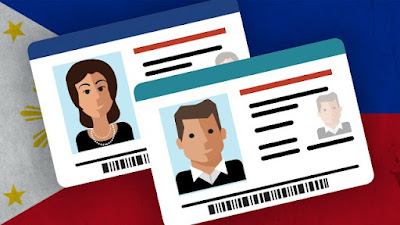The implementation of the country’s first-ever national identification system is a pivotal step towards ensuring that every Filipino and resident can have access to public services and development opportunities, the National Economic and Development Authority said.
The Lower House had already approved its version of the measure, with the Senate recently approving its bill on second reading this Wednesday. The Senate considers the system as a “social and economic platform” that brings public and private services closer to the people.
Citing a recent study of the World Bank’s ID for Development group (ID4D), Socioeconomic Planning Secretary Ernesto M. Pernia said despite the numerous IDs in existence in the Philippines, 14 percent of Filipinos are denied of government and other financial services due to a lack of proper identification documents.
“No matter how good a program is in principle, the government fails when people, especially the poor, cannot access it simply because they cannot present any ID,” Pernia noted.
The study of the WB was based on data collected from November 2017 to February 2018 through interviews, field visits, and desk research. Results of the study also show that the Philippines’ identity landscape is “fragmented, inefficient and duplicative” with at least 25 functional ID systems, many of which are paper-based.
A common ID used by Filipinos apart from birth certificates and voter’s ID is the passport, “back-office processing requirements” of which are twice and thrice costlier than in Thailand and Indonesia, respectively, the study adds.
“We need a system that will unify all government IDs to facilitate citizens’ transactions with government and even with the private sector. A national ID system can open up opportunities especially for the poor and marginalized and will make public service delivery more efficient,” Pernia said.
NEDA estimates that about Php25 billion will be needed for five years. Of this, Php2 billion has been made available to PSA for the design of the system and procurement of the necessary hardware and software. Apart from hiring and training personnel, a well-designed facility to house the huge data and hardware complement will be constructed.
Pernia also noted how the new ID system is crucial in making sure that poor households that will be affected by the newly implemented tax reform law will receive the government’s tax safety nets.
The Department of Finance earlier announced that 10 million poorest households will each receive almost Php10,000 spread over the next three years, starting 2018, to help them cope with the inflationary effects of the tax reform law which economists expect to be minimal and transitory.
The National ID system is expected to roll out this year as soon as the Philippine Identification System bill is passed by Congress and signed into law by President Duterte.
“Once in place, the National ID system can be continuously enhanced to expand its features while ensuring security and privacy,” Pernia said.
The Lower House had already approved its version of the measure, with the Senate recently approving its bill on second reading this Wednesday. The Senate considers the system as a “social and economic platform” that brings public and private services closer to the people.
Citing a recent study of the World Bank’s ID for Development group (ID4D), Socioeconomic Planning Secretary Ernesto M. Pernia said despite the numerous IDs in existence in the Philippines, 14 percent of Filipinos are denied of government and other financial services due to a lack of proper identification documents.
“No matter how good a program is in principle, the government fails when people, especially the poor, cannot access it simply because they cannot present any ID,” Pernia noted.
The study of the WB was based on data collected from November 2017 to February 2018 through interviews, field visits, and desk research. Results of the study also show that the Philippines’ identity landscape is “fragmented, inefficient and duplicative” with at least 25 functional ID systems, many of which are paper-based.
A common ID used by Filipinos apart from birth certificates and voter’s ID is the passport, “back-office processing requirements” of which are twice and thrice costlier than in Thailand and Indonesia, respectively, the study adds.
“We need a system that will unify all government IDs to facilitate citizens’ transactions with government and even with the private sector. A national ID system can open up opportunities especially for the poor and marginalized and will make public service delivery more efficient,” Pernia said.
NEDA estimates that about Php25 billion will be needed for five years. Of this, Php2 billion has been made available to PSA for the design of the system and procurement of the necessary hardware and software. Apart from hiring and training personnel, a well-designed facility to house the huge data and hardware complement will be constructed.
Pernia also noted how the new ID system is crucial in making sure that poor households that will be affected by the newly implemented tax reform law will receive the government’s tax safety nets.
The Department of Finance earlier announced that 10 million poorest households will each receive almost Php10,000 spread over the next three years, starting 2018, to help them cope with the inflationary effects of the tax reform law which economists expect to be minimal and transitory.
The National ID system is expected to roll out this year as soon as the Philippine Identification System bill is passed by Congress and signed into law by President Duterte.
“Once in place, the National ID system can be continuously enhanced to expand its features while ensuring security and privacy,” Pernia said.

Comments
Post a Comment